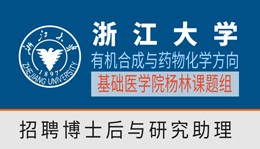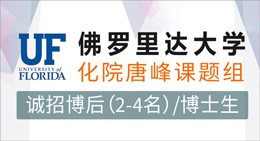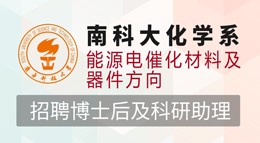当前位置:
X-MOL 学术
›
Urban Forestry Urban Green.
›
论文详情
Our official English website, www.x-mol.net, welcomes your feedback! (Note: you will need to create a separate account there.)
Rediscovering circularity in productive urban landscapes
Urban Forestry & Urban Greening ( IF 6.0 ) Pub Date : 2024-04-28 , DOI: 10.1016/j.ufug.2024.128339 Akiko Iida , Toru Terada , Kazuaki Tsuchiya , Tadashi Yamaguchi , Makoto Yokohari
Urban Forestry & Urban Greening ( IF 6.0 ) Pub Date : 2024-04-28 , DOI: 10.1016/j.ufug.2024.128339 Akiko Iida , Toru Terada , Kazuaki Tsuchiya , Tadashi Yamaguchi , Makoto Yokohari
The recycling of urban green waste generated from urban forests is important in enhancing urban circularity; however, most green waste remains underutilized. An effective way to recycle green waste is composting. Recent studies show the effectiveness of decentralized composting in home and community gardens; however, little is yet known about linkage to commercial urban agriculture, which could play a critical role in urban food supply. This study aims to investigate the community-scale composting system of green waste integrated into commercial farming, using Tokyo as a case study where urban and agricultural land uses are mixed historically. We conducted mailed questionnaire surveys and in-person semi-structured interviews with urban farmers. The results revealed that approximately one-third of professional urban farmers still produced compost from green waste, especially leaf litters, to improve soil quality. They have adapted urbanization by expanding leaf litter sources beyond their own woodlands to various neighboring urban forests within a few kilometers, including parks, schools, and shrines. Although urbanization has drastically changed the tangible landscape, urban farmers have handed down the intangible system for hundreds of years by retrofitting their system. While the system can contribute to reducing green waste and enhancing urban circularity, urban farmers are motivated by economic reasons rather than such environmental reasons. In cities that encompass productive urban landscapes, decentralized composting systems work effectively in commercial urban agriculture due to its geographic proximity of waste supply and demand sites. This study suggests the potential benefits of having urban farms in cities abundant in underutilized organic wastes. Further research is needed on how to scale up waste recycling through urban agriculture to foster urban circularity and sustainability.
中文翻译:

重新发现富有成效的城市景观中的循环性
城市森林产生的城市绿色废物的回收利用对于增强城市循环性具有重要意义;然而,大多数绿色废物仍未得到充分利用。回收绿色废物的一个有效方法是堆肥。最近的研究表明,家庭和社区花园分散堆肥的有效性;然而,人们对商业城市农业的联系知之甚少,而商业城市农业可能在城市粮食供应中发挥关键作用。本研究旨在以东京作为历史上城市和农业土地用途混合的案例研究,调查将绿色废物融入商业化农业的社区规模堆肥系统。我们对城市农民进行了邮寄问卷调查和面对面的半结构化访谈。结果显示,大约三分之一的职业城市农民仍然利用绿色废物(尤其是落叶层)生产堆肥,以改善土壤质量。他们通过将落叶物来源从自己的林地扩展到几公里范围内的各种邻近城市森林,包括公园、学校和神社,来适应城市化。尽管城市化极大地改变了有形面貌,但城市农民却通过改造自己的制度,传承了数百年的无形制度。虽然该系统有助于减少绿色废物和增强城市循环,但城市农民的动机是经济原因而不是环境原因。在包含生产性城市景观的城市中,由于其地理位置接近废物供应和需求地点,分散式堆肥系统在商业城市农业中有效发挥作用。这项研究表明,在富含未充分利用的有机废物的城市中建立城市农场的潜在好处。 需要进一步研究如何通过城市农业扩大废物回收规模,以促进城市循环和可持续性。
更新日期:2024-04-28
中文翻译:

重新发现富有成效的城市景观中的循环性
城市森林产生的城市绿色废物的回收利用对于增强城市循环性具有重要意义;然而,大多数绿色废物仍未得到充分利用。回收绿色废物的一个有效方法是堆肥。最近的研究表明,家庭和社区花园分散堆肥的有效性;然而,人们对商业城市农业的联系知之甚少,而商业城市农业可能在城市粮食供应中发挥关键作用。本研究旨在以东京作为历史上城市和农业土地用途混合的案例研究,调查将绿色废物融入商业化农业的社区规模堆肥系统。我们对城市农民进行了邮寄问卷调查和面对面的半结构化访谈。结果显示,大约三分之一的职业城市农民仍然利用绿色废物(尤其是落叶层)生产堆肥,以改善土壤质量。他们通过将落叶物来源从自己的林地扩展到几公里范围内的各种邻近城市森林,包括公园、学校和神社,来适应城市化。尽管城市化极大地改变了有形面貌,但城市农民却通过改造自己的制度,传承了数百年的无形制度。虽然该系统有助于减少绿色废物和增强城市循环,但城市农民的动机是经济原因而不是环境原因。在包含生产性城市景观的城市中,由于其地理位置接近废物供应和需求地点,分散式堆肥系统在商业城市农业中有效发挥作用。这项研究表明,在富含未充分利用的有机废物的城市中建立城市农场的潜在好处。 需要进一步研究如何通过城市农业扩大废物回收规模,以促进城市循环和可持续性。






































 京公网安备 11010802027423号
京公网安备 11010802027423号